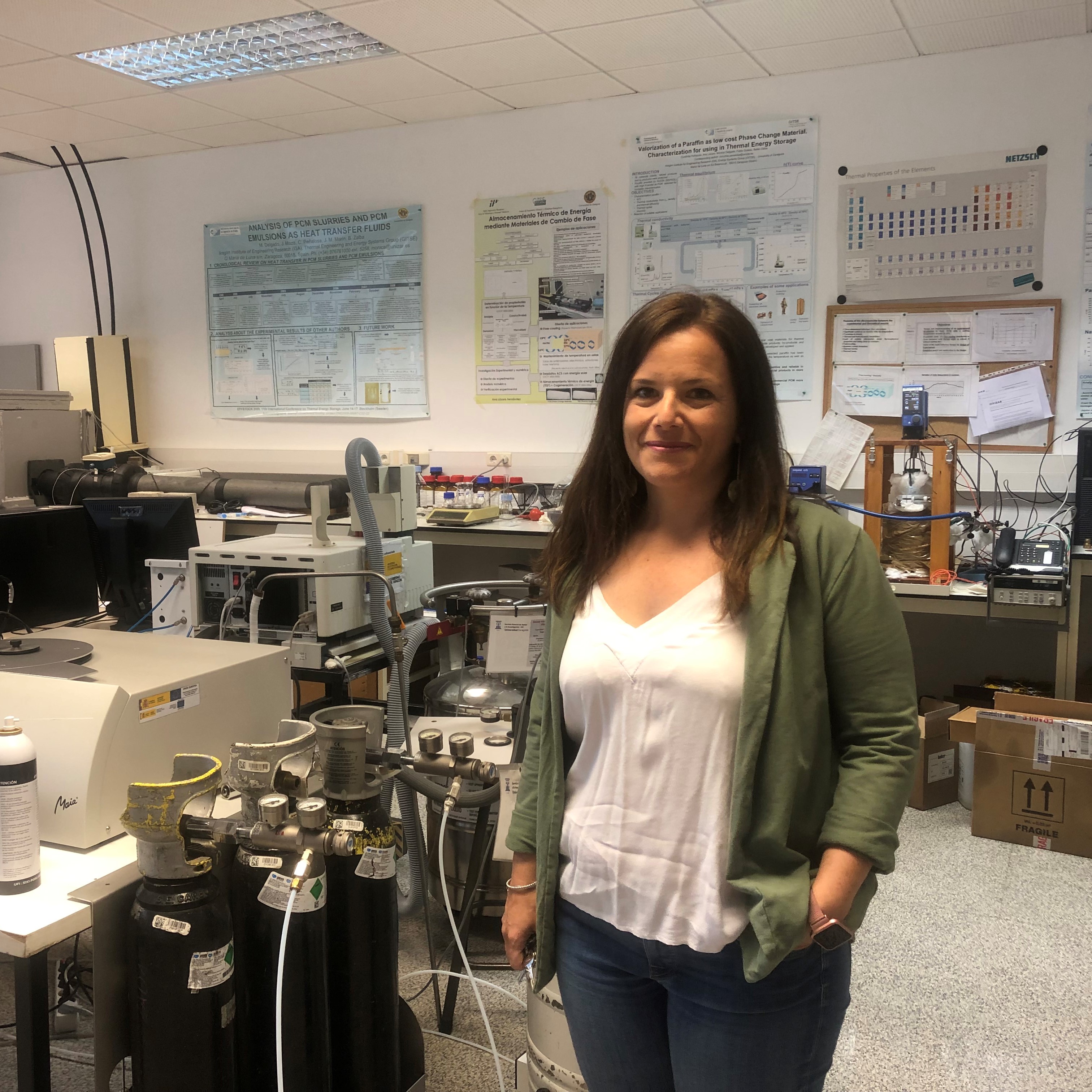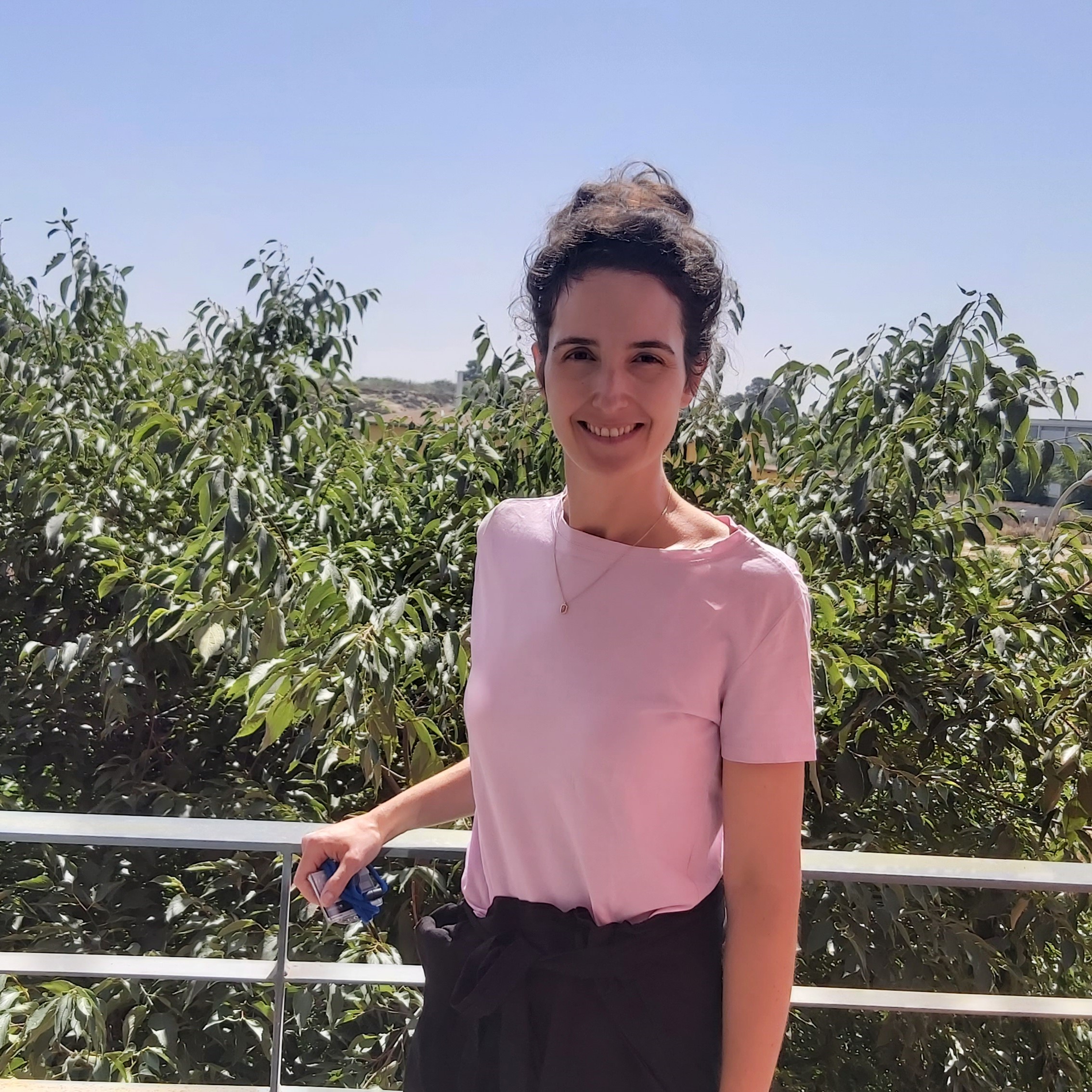
Why did you decide to go into research?
When I started my final year research project, I found it very motivating to be able to look for solutions to everyday problems, especially with regard to the use of renewable energies. That was my motivation, I liked the work and I have been lucky enough to be able to dedicate myself to it.
You are also teacher at the University of Zaragoza, what subjects do you teach?
I teach in the area of thermal engines and machines. I teach two subjects in the undergraduate degree, thermodynamics and thermal engineering, and two in the master's degree, energy optimisation and numerical and experimental methods. In addition, this year for the first time I have taught thermal energy storage.
As a researcher at the I3A and teacher of five subjects, how do you combine this?
That is precisely one of the big handicaps. The teaching load is very heavy and it is all concentrated in the same period of time. I try to manage it as best I can, based on hours and effort.
You are part of GITSE, the Thermal Engineering and Energy Systems group, what are your main lines of research?
We work on the integration of energy systems to improve efficiency, mainly with a view to reducing the resources consumed and, in particular, to promote the integration of the use of renewable energies in heating, cooling and electricity systems. Within this there are several lines of research, one would be the whole part of energy optimisation and then there is another important part, which is the one I started with, and which deals with the storage of thermal energy, as a tool that favours precisely that, to be able to save and use renewable sources in other periods of time.
Any ongoing projects you would like to highlight.
At the moment, we have two projects financed by the State Research Agency in which we are researching trigeneration systems, that is, systems that produce heat, cold and electricity using solar energy and biomass. In addition, we are also developing the thermal energy storage systems needed for this. And the other project is more focused on thermal energy storage and we are in charge of advancing in the analysis of the life cycle of these systems in order to make an integral evaluation of the system.
How long have you been linked to the I3A?
Shortly after it was founded, since 2005.
What do you like most about the Institute?
It offers a very positive framework for research, with a lot of collaboration and support. Also, at the I3A you often get the help and understanding that you don't find in many places.
What would you highlight about your work as a researcher?
The international collaboration that we carry out in research is something that I found very striking when I started, to see how it was possible to collaborate with people far away from here and at the same time show an incredible closeness. People you consider references, but who are then very close to you and help you in your research. This is very enriching. I am lucky to be able to dedicate myself to something I really like, whether it is teaching or research.
And what are the negative points of your work?
Research is very undervalued in all respects. Also, an academic career is a very tough obstacle course. Hopefully this will change in the future because there are very valuable people who fall by the wayside.
What would you say to someone who is thinking of going into research?
I would not deceive them, we all know that the road is unfortunately not as easy as we would like it to be in terms of getting decent working conditions. There is always a large part of "volunteering" in research work that should not exist... But, in general, it is a very rewarding job. Those of us who dedicate ourselves to this is because the gratification and reward comes from our own work and not from external recognition.
CLOSE UP...
A dream: To be able to continue with the work team we have today. I hope that people who are starting out and are not yet established can do so and thus have a stable working team.
A book: One Hundred Years of Solitude by Gabriel García Márquez.
A series: Doctor in Alaska.
What do you do in your free time: Spend time with my daughters. They do rhythmic gymnastics, which involves being a fan and following them in everything they do. Also walking, reading and spending time with friends.
Favourite music group: Fito & Fitipaldis.
A trip: All of them, I like travelling a lot and from all of them I would keep some experience.
Pending trip: When I went to Japan for work I really wanted to get to know it and visit it as a tourist. Everything was so different.
How would you define yourself: I think I'm enthusiastic, I also try to be optimistic and see the good side of things.
